Poverty
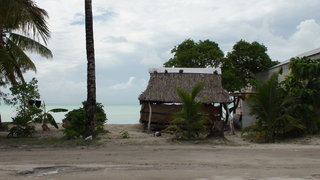
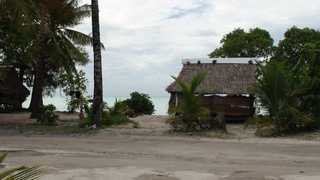
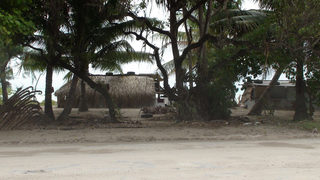
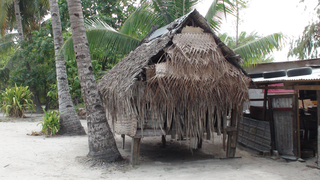
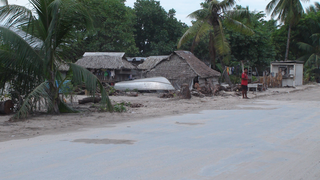
Traditional Houses
A large proportion of the Kiribati population live in traditional housing even in urban areas
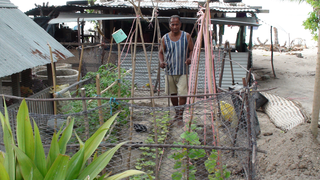
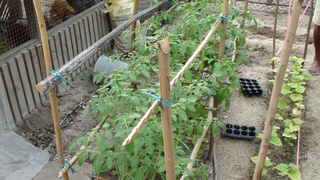
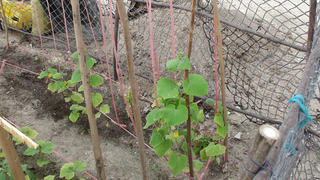
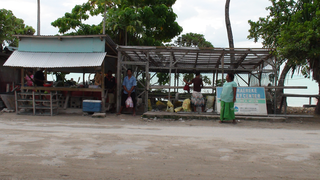
Home Gardens
The Taiwan Technical Mission is trying to encourage more home gardens. However, they tend to be small due to limited land and difficult to grow due to poor soil
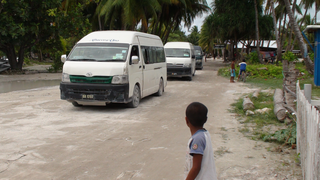
Minivan
A constant stream of minivans service South Tarawa from Betio to Buota (the end of the road)
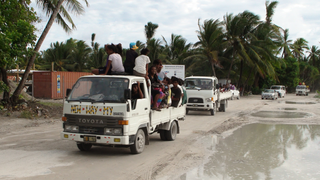
Trucks
Trucks are often used for transportation. It is very rough on the back of the trucks especially with all the potholes in the road

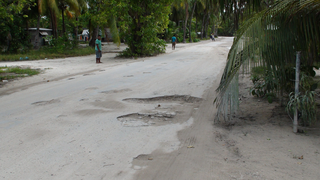
Roads
The roads are full of potholes
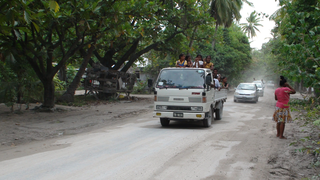
Footpaths
Most roads do not have footpaths and this is very dangerous for pedestrians

Dump
Nobody monitors what is being dumped
Poverty means different things to different people and is based on time and location.
Poverty can be either absolute or relative. Absolute poverty is where families struggle to provide adequate food for themselves. Relative poverty is where people are disadvantaged compared to their neighbours and struggle to meet the needs of a minimum standard of living in their own society.
Poverty and hardship may be caused by a sudden change in personal/household circumstances. This could be extraneous such as a natural disaster or a conflict situation. Poverty may be due to personal circumstances such as unemployment, sickness, death or disability.
When people visualise poverty they usually focus on its most extreme manifestations: absolute poverty and destitution. However, there are many other ways people can be poor or can suffer hardship. People can be reasonably well fed and moderately healthy but still live in relative poverty. Their incomes or subsistence production may be sufficient to meet their food needs but they may be unable to meet other basic needs expenditure. They may not have access to basic services such as water, sanitation, health, education or socio-economic opportunities.
Hardship and poverty centre around the lack of regular and sufficient cash income, poor access to basic services and the lack of skills to meet opportunities and challenges as they arise.
Poverty In A Kiribati Context
Kiribati people believe that you are not poor if you can maintain a subsistence living by going out fishing and obtaining basic needs from the land. To some Kiribati people being poor means lacking anything to eat (without considering the nutritional values).
However poverty in the Kiribati does not mean hunger or destitution in the traditional sense but rather that many households are struggling to meet their basic living expenses on a daily or weekly basis. This is particularly noticeable in those expenses that require cash payments.
Families have to make choices between the competing demands for household expenditure and the limited availability of cash income to meet that expenditure. Trade offs are made between one bill and another such as purchase adequate nutritious food or paying fees.
Often people borrow from informal loan providers ("loan-sharks") who charge very high interest rates for small unsecured loans to meet family commitments and community obligations. People will also accumulate store debts or borrow from other family members. This results in them being frequently or continually in debt.
Defining poverty by level of cash income or expenditure alone might not be appropriate in Kiribati. In Kiribati, outside of South Tarawa, most households have high levels of subsistence production and consumption.
Prevalence
It is estimated that around one-in-five households and almost one-in-four of the population of Kiribati may be living below the basic needs poverty line. Households experiencing basic needs poverty are facing hardship on a daily basis.
Most At Risk Groups In Kiribati Society
- Large families with low income or irregular income
- Unemployed individuals with low education including unemployed youth
- People without assets, land or property
- Employed people who support visitors and relatives
- People who are not hard working or productive
- People with poor health or disabilities
- Households where a female is the head of the household such as widows with several children, single mothers with limited income sources
- Elderly people without children or support
- Orphans
- Children with alcoholic parents
- People without permanent homes
Housing
Many of the poor live in unregulated, low-quality housing without proper access to water, sanitation and other basic services. These poor housing conditions lead to poor health, employment prospects and education.
Education
Children often miss school due to ill-health or because school fees and costs have not been paid. Many poor families cannot afford the costs of uniforms, books and other related items.
Adults are frequently poorly educated and only obtain low paying jobs. Often the employment is casual - if employment is available at all.
This lack of education perpetuates the cycle of poverty.
Without a good basic education it is very difficult for the poor to move out of poverty. Having an ability to read, write and learn skills give the poor the ability to take advantage of economic opportunities that may arise and in turn derive higher incomes. Without a sound basic education employment opportunities are limited to low paying jobs.
A major issue with education in Kiribati is that many primary and junior secondary schools appear to be under-resourced and poorly maintained therefore not providing optimal learning environments.
Poverty of Opportunity
Poverty of opportunity is widespread in Kiribati. This occurs when people lack opportunities to participate in the social, economic or political life of their society.
It results from poor access to services, poor governance, poor education and health, limited employment opportunities and social exclusion.
Poverty of opportunity is important in defining the extent of poverty and hardship in a society as it is often the underlying causes of income poverty.
In Kiribati, hardship is often due to limited economic opportunities for earning an income.
Economic Vulnerability
The poor are most impacted in society when prices increase and income is stagnant.
The impact of rising fuel and food prices have serious implications for both governments and households alike.
Real incomes decline as price rises are not matched by increased earnings. This produces hardship as many families try to balance their daily living needs with their often very limited income resources.
Economic vulnerability is very high for the poor because Kiribati imports most of its food and fuel from overseas therefore has no control over the price.
Urban and Rural Hardship
Hardship exists in both rural and urban areas. It is most commonly experienced in the urban centres where demands for cash are the greatest and subsistence production is limited due to depleted fish stocks and limited land for growing food.
Those living in the rural areas have the option of falling back on coping strategies based on subsistence production. Hardship in the rural areas was mostly due to limited access to basic services. These services include a safe and accessible water supply, transportation, power and communications. Another major issue for rural communities is lack of links to markets to sell produce or fish for income.
Subsistence production is not a viable option in an overcrowded urban environment. Hardship in the urban areas was mostly from low income, overcrowding, criminality, drinking, depletion of natural resources and dependency on money.
Poor Nutrition
Households with income or expenditure levels below the basic needs poverty line will not necessarily be going hungry.
However, there are indications that the poorest households may not be getting adequate nutrition.
This is prevalent for children in urban areas where local produce and home grown produce may not be readily available.
Poor diet and inadequate nutrition are critical health issues for children and the consequences can remain with them for the rest of their life.
Under nourishment also affects labour productivity and earning capacity.
Limited Cash Availability
Approximately 15% of the workforce participates in the formal wage economy and the public sector provides approximately 80% of monetary remuneration. There are limited cash paying jobs in Kiribati.
Most poor households are large with an average of nearly four children. These households spend a significant amount of their cash on meeting the costs associated with education such as fees, books, school supplies, uniforms and lunches.
Many poor households are also among the "working poor". There may be one or more people employed in the household but they are often employed in low paying jobs and the income is insufficient to meet the basic needs of the family (or extended family group) in the household.
The limited cash availability causes the household to struggle in meeting their daily and weekly living expenses such as food, power, transport, school fees, other education costs, clothing, housing and medical costs. These households have to constantly make a trade off between which bills, food or fees to spend the available cash on.
Infrastructure
Poor infrastructure raises costs to businesses and constrains employment growth. This in turn hinders poverty reduction.
